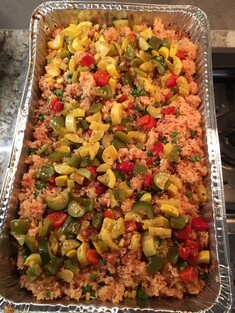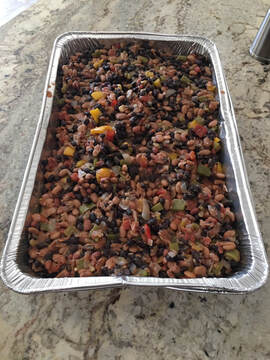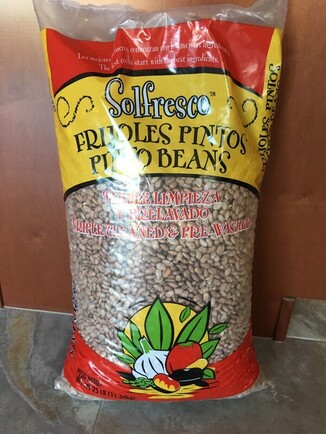 Yummy rice with added goodies, for 30 people.
Yummy rice with added goodies, for 30 people. The people who work in shifts in the kitchens are volunteers and very few have ever worked in the food services industry. Retired cardiologists, college administrators, judges, teachers, and members of any number of other professions chop, stir and sweat to feed the hungry. Some of the food is made from scratch on site; the rest is brought in by volunteers from the community. Whatever is donated dictates the day's menu, which centers on eggs at breakfast and beans, rice, shredded meat and corn tortillas and a salad or some kind of cooked vegetable for other meals. And of course treats; everyone loves sweet treats. Meals in the government-run detention centers are sparse and frequently inedible (as I'm sure everyone knows from news reports this week) and our guests are grateful for whatever we give them, even the rice dish I made that managed to be gritty and mushy at the same time.
 Beans and veggies for a crowd.
Beans and veggies for a crowd. Food is the way to someone's heart. That's a familiar saying. Volunteers in Tucson (and in many other places too) buy the ingredients and work in their own homes to create nutritious, delicious meals for the refugees.It's one of the ways we can show our guests that there are people in this country who welcome them.
As always the Alitas program is in need of donations to help its guests:
- Aid to migrant women and children - how to donate.
- Official GoFundMe for the Alitas program.
Disclaimer: The opinions in this blog are mine alone and do not represent an official Alitas account. Any mistakes are mine and mine alone.
<< Previous

 RSS Feed
RSS Feed
